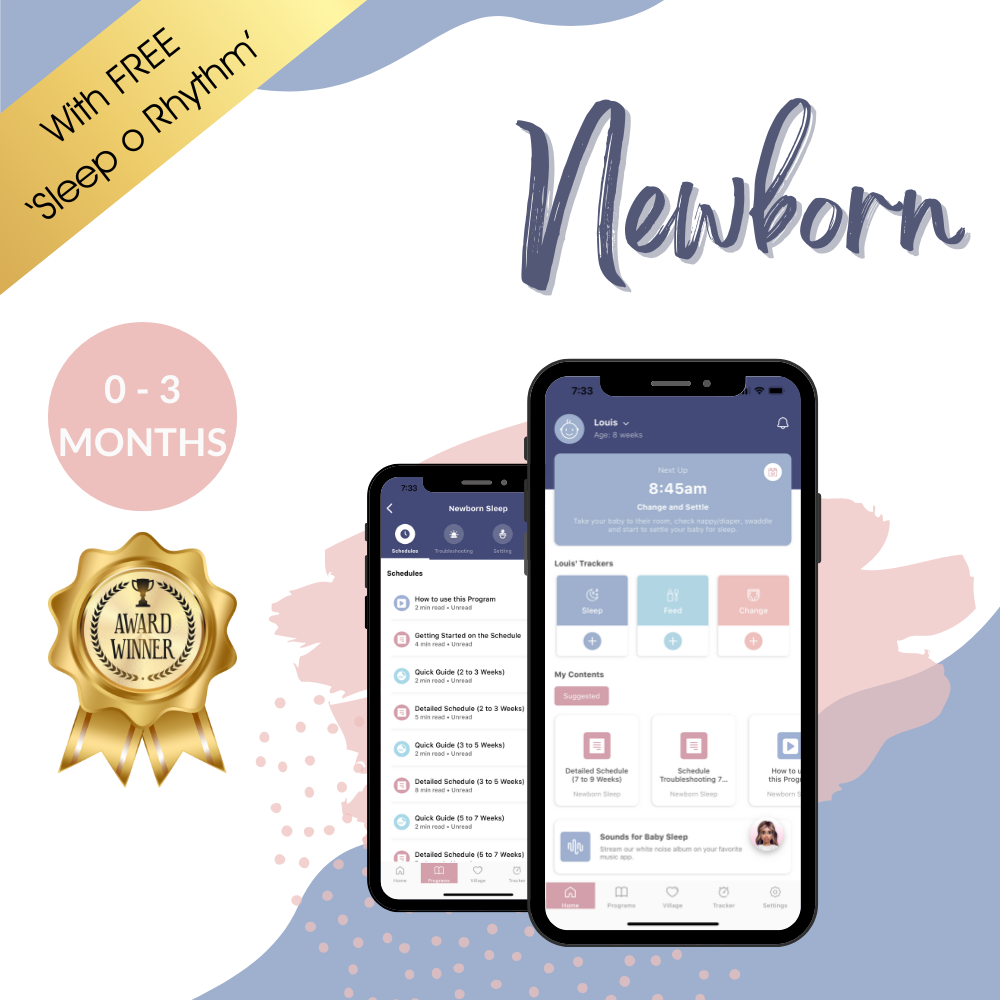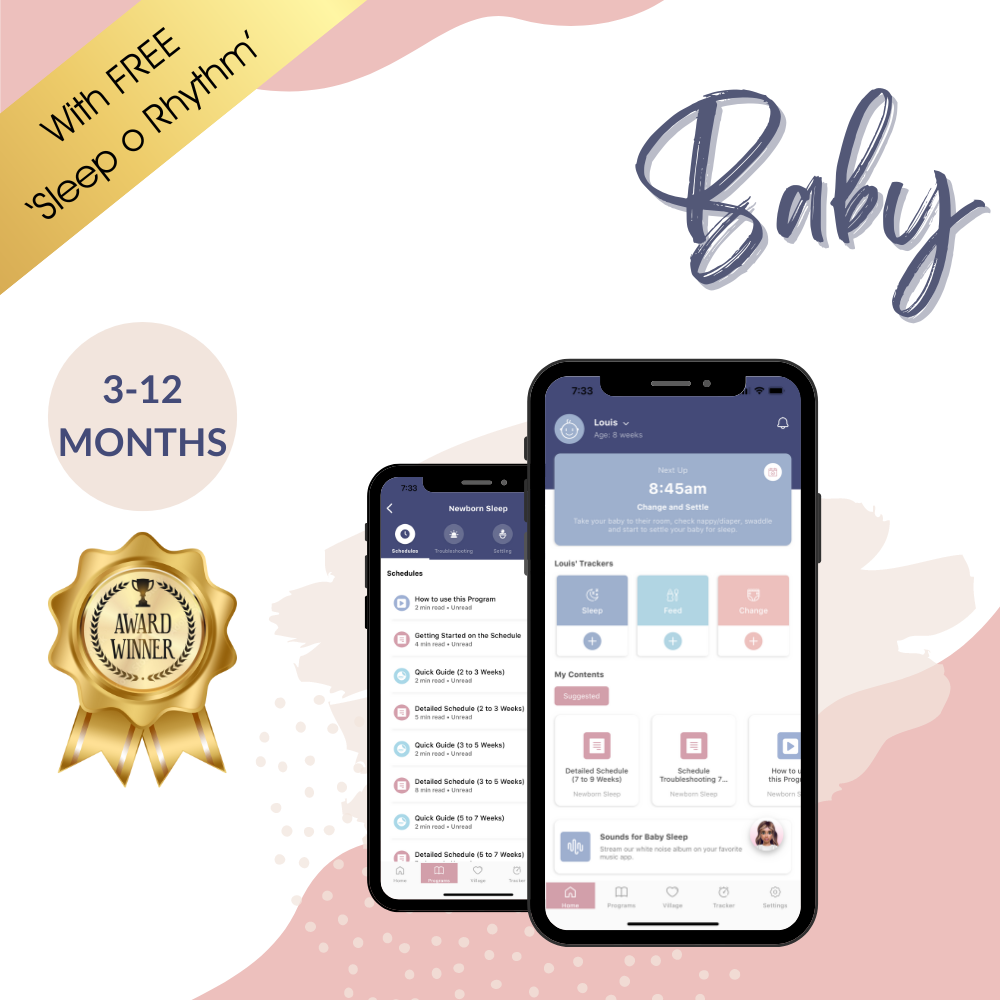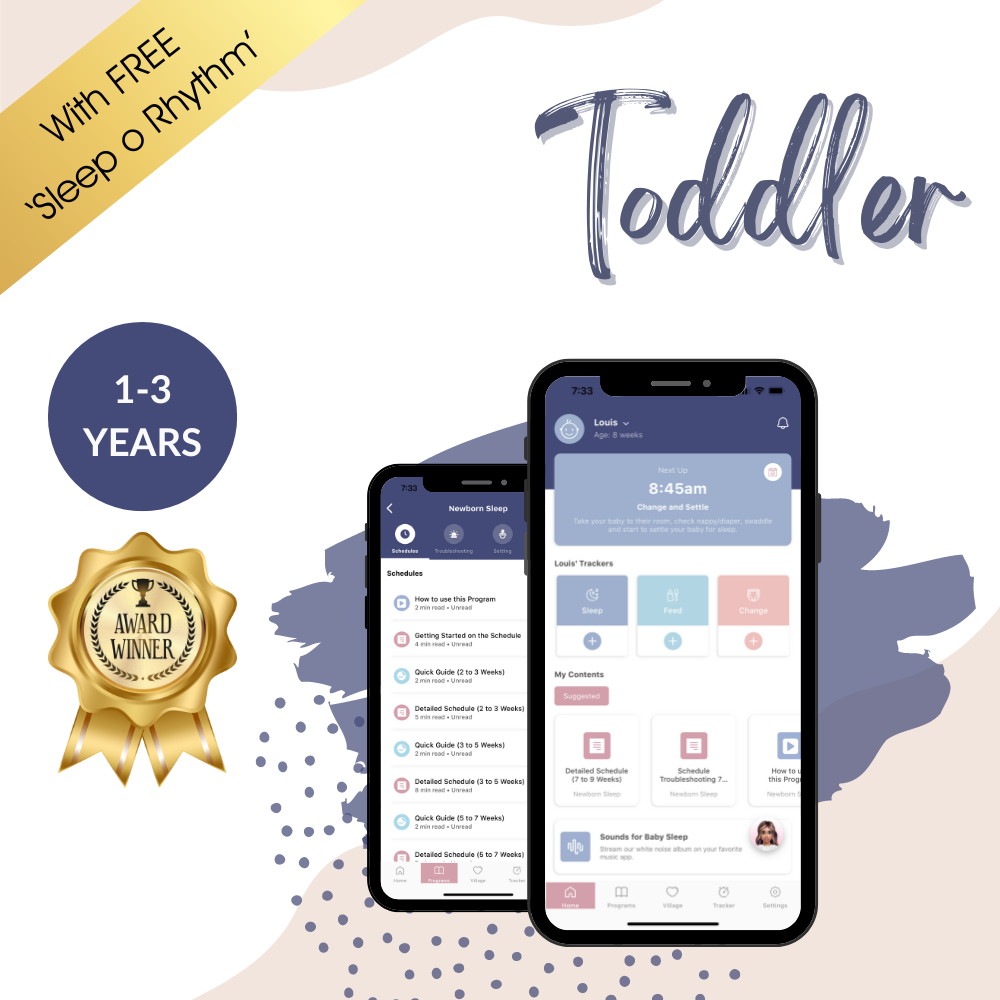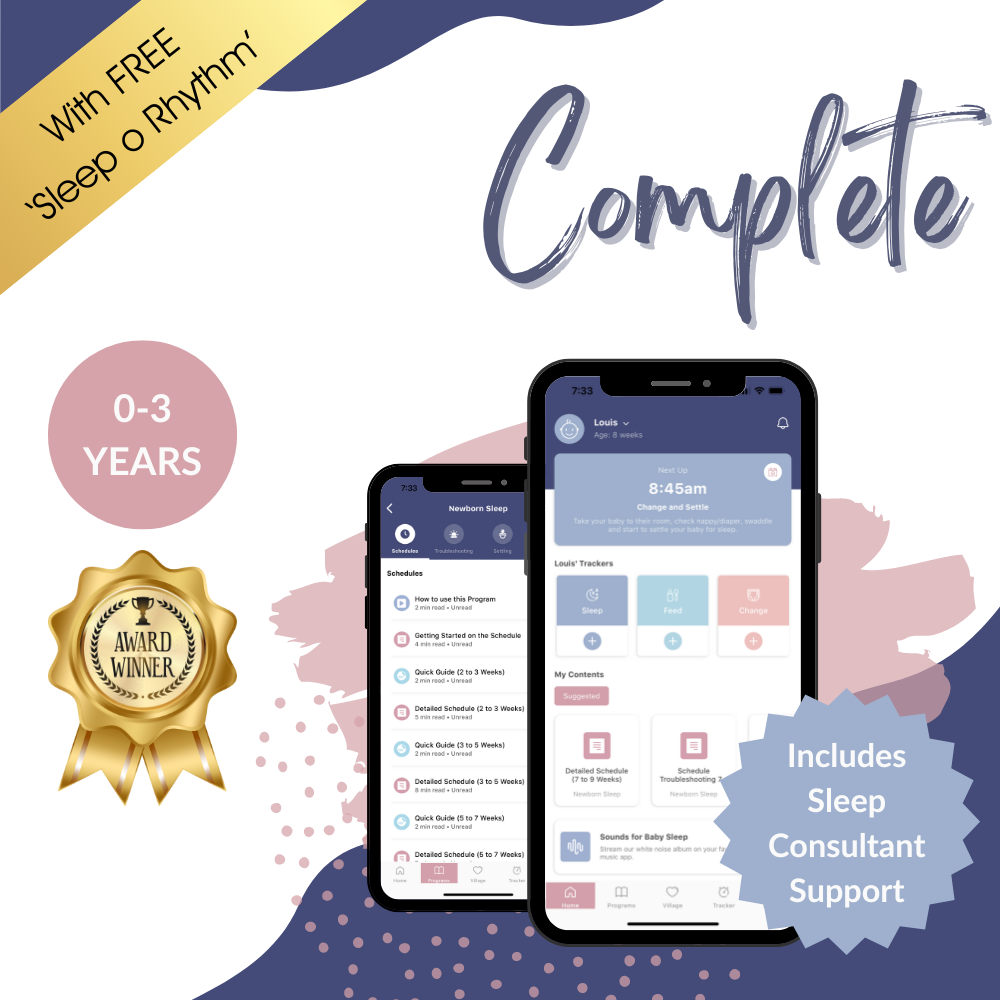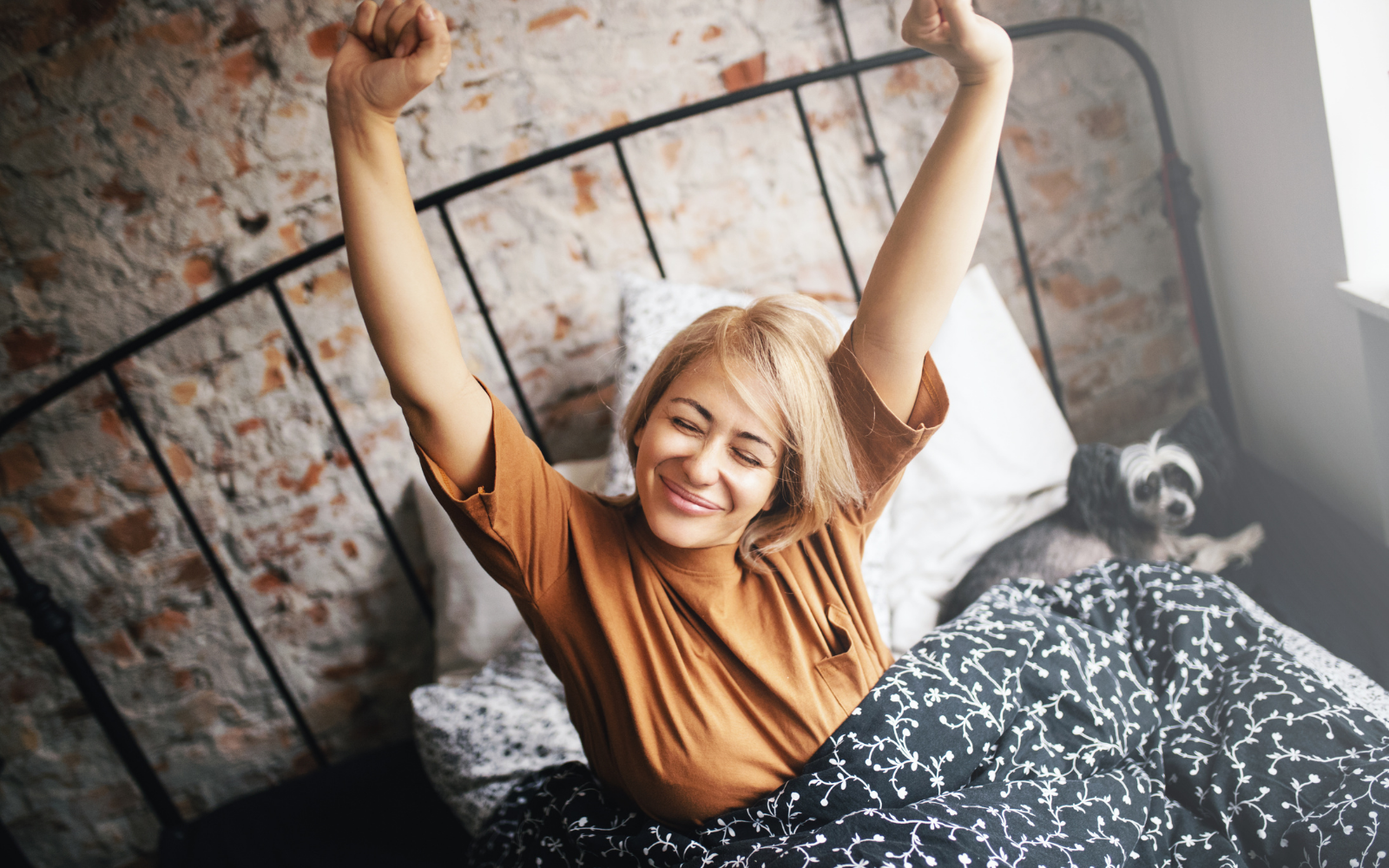
Getting a Good Night’s Sleep: Baby Sleep Tips That Work
Getting a good quality night sleep is a basic ‘nutrient’ that is essential to our health and wellbeing. However, so often many of us struggle to get a good night’s sleep – whether it be struggling to fall asleep in the first place, or having trouble staying asleep through the night.
For many, it may also be the difficulty in going back to sleep if you need to get up during the night to tend to your baby. Sleep difficulties are often more acutely felt as parents if we have finally got our babies to sleep! And, of course, we no longer have the ‘luxury’ of catching up on our sleep with a big sleep-in on a Sunday…
The good news is that, just like with your babies’ sleep, there are some really simple techniques that you can engage in to help improve your sleep quality and quantity.
Yes, I want more sleep!
If you need a helping hand with tackling your baby’s sleep, then check out our Pediatrician-recommended Sleep Programs.
Get our Sleep Programs
Understanding sleep hormones
An important part of understanding how to improve your sleep is understanding the role of two different hormones and the impact they have on sleep.

The first important hormone is ‘melatonin’. When our melatonin is at optimal levels, this encourages good sleep. What we know about melatonin is that it responds to light. When we are exposed to bright lights, this reduces how much melatonin is produced.
By contrast, when we are exposed to dim or dark light (or complete darkness) this increases our melatonin production. Therefore, to help support a good night sleep you want to be mindful about your light sources in the evening through until bedtime, or if you are up with your baby during the night.
For example, if bedtime is about 10pm, then from about 7/8pm you want to start reducing the light in your home. This means shutting the curtains, dimming the lights, and/or using lamps instead of bright ceiling lights. In addition, at least one hour before bed, try not to use anything with a blue light – like phones or computers. This is also true if you are getting up for night feeds; avoid using your phone and keep the lights really dim.
Finally, just like your babies’ room, you want to make sure your room is really dark, and you have blocked out any bright light sources. Implementing these simple changes really can make a big difference to your melatonin levels!

The second important hormone in relation to sleep is called ‘cortisol’. Cortisol is also known as our stress hormone and is produced when we are under stress. Under normal functioning, cortisol will naturally decrease in the evening so it is at its lowest point for bedtime, then, it will slowly increase in the early morning to give us energy to get out of bed.
Say goodbye to sleepless nights.
Join over 800,000 families worldwide who are enjoying excellent sleep with our Sleep Programs, created by experts in the field of pediatric sleep.
Get our Sleep Programs
However, as mentioned, cortisol is released when we are under stress and it can also increase in response to stimulation. What this means is that if we are feeling really stressed or worried in the evening, instead of decreasing as it naturally should, our cortisol levels can increase – making it a lot harder to fall asleep.
In addition, if we are engaged in stimulating tasks such as work, gaming, playing on our computer, or scrolling through social media – we will produce more cortisol. Again, this means that instead of feeling calm and ready for sleep, we are ready for action!
So instead of engaging in stimulating activities before bed, we need to engage in relaxing, calm, activities. For example - yoga, light stretching, relaxation exercises, meditation, reading a nice book, having a warm bath or shower, watching some relaxing tv (but stopping about an hour before sleep time), calming arts and crafts (e.g. knitting) and so on.
This means no gaming, working, going on computers, watching stimulating tv, or scrolling through our phones. Ideally, you would stop all of these activities at least 1.5 hours before bed and engage in the calming activities as listed above. If you can do this, this will reduce cortisol, reduce the chances of being over-stimulated, and help you fall asleep easier.
Establishing a sleep routine
As you would have learnt in your quest to get your baby to sleep, a routine serves them really well. As it turns out, a routine can serve you just as well too!
Establishing a ‘bedtime routine’ is one of the best things you can do to promote good sleep. Engaging in the same, or similar, behaviours in the lead-in to bed can help to signal to your brain that it is time for sleep – and get you into the best position to fall asleep easily.
Remember, when creating a bedtime routine, we want to avoid stimulating activities and engage in calming ones instead. A bedtime routine may look like the following:
2hr before bed: stop all work, put away the computer, phone and gaming and start to engage in some wind-down activities – such as reading a book or a TV show (just avoid action-packed TV that will have your mind reeling!)
1.5hr before bed: start engaging in calming activities (bath/shower, stretching, reading etc.)
30min before bed: get into pjs, wash face/brush teeth etc., then off to bed!
It should also be noted that once you are in bed, this is not the place to engage on your phone, watch tv, or read a book. Ideally, all of these activities are done outside of the bedroom – leaving the bed to be associated with sleep.
As part of a routine, you also want to have consistent bedtimes and wake-times. When you are able to have predictable bed and wake-times this encourages your body clock to know when it is time to sleep, and when it is time to wake.
Finally, when you are creating your sleep routine make sure that you give yourself plenty of time between eating and bedtime – you definitely don’t want to go to bed overly full as this can really impact on your ability to fall asleep.
Substances and sleep
You also want to be mindful about substances and sleep. In particular, caffeine and alcohol. Caffeine is a stimulant – this means it has a stimulating effect on the body. Quite the opposite of sleep! In addition, caffeine has a half-life of 5 hours – this means it takes 5 hours for only half the amount of caffeine to leave your body. Therefore, if you are having caffeine as late as 7pm, by midnight only half of that caffeine has left your body!
Let's get your little one's sleep sorted ASAP!Our award-winning Sleep Programs will solve your baby's sleep challenges in no time.
Get our Sleep Programs
It also pays to be mindful about what food/drinks contain caffeine. Aside from coffee, you’ll also find caffeine in energy drinks, Coca-Cola, black tea, green tea, hot chocolate, chocolate and even chocolate ice-cream! Ideally, if you are a coffee drinker then you will want to consume all your caffeine before midday, and try to limit your coffee to three cups. Black tea/green tea, energy drinks, Coca-Cola or chocolate has slightly less caffeine so you could have your last fix around 2pm. You certainly do not want to be having any caffeine after 2pm(ish), and definitely not just prior to bed!
In addition to this, also be mindful of your alcohol consumption. Alcohol is a ‘depressant’ and it can negatively impact on your sleep quality and cause you to wake multiple times in the night. Reducing, or avoiding, alcohol is a great idea if you feel it is impacting on your sleep.
What if you still can’t fall asleep?
If you find that you are hopping into bed tired, but then as soon as it is time to sleep you begin to flip from side to side, or cannot turn off the thoughts, give yourself about 20minutes to fall asleep. Then, if you still cannot sleep, get up out of bed and go into another room, such as your lounge and read a book (or do something else relaxing) under dim light until you feel tired again.
There is no point tossing and turning for hours in bed – this only pushes sleep further away and the anxiety about not sleeping will only make things worse. Getting out and doing something calming is a great way to manage this. Equally so, bedtime is not the time to solve your problems. If you find you are worried about something, get up and write down your problems so you can deal with them the next day.
So, there you have it – some simple tips and tricks to help you find your sleep. The most important thing here is consistency. Engaging in these changes for just one-night probably won’t do much. But being consistent will. And just like with your babies’ sleep, persevere. Keep trying to do what you can to facilitate a good night’s sleep and soon you too, will sleep like a baby.
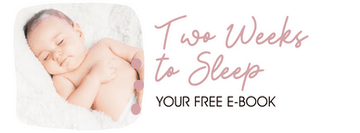
Receive product and services updates, promotional offers and other marketing communications based.


